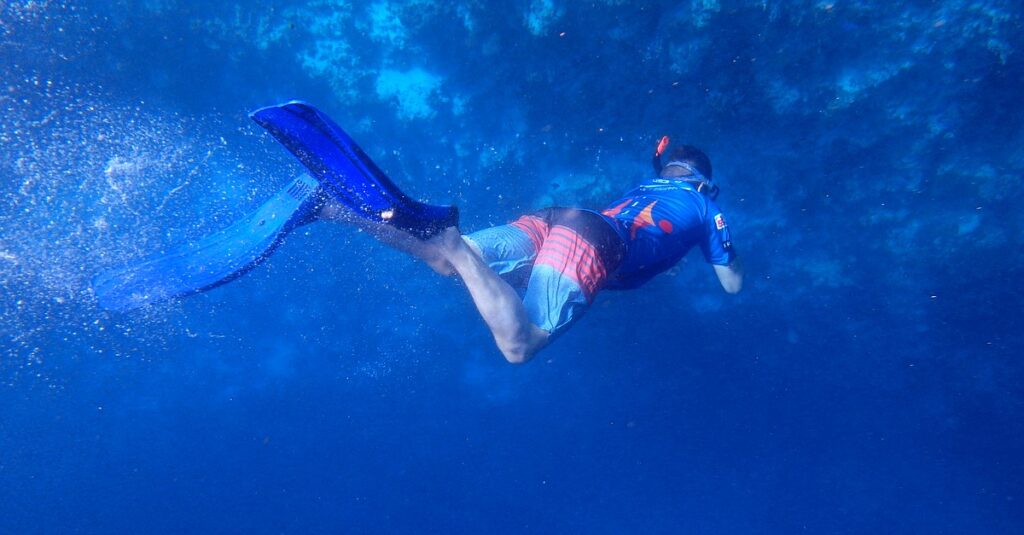

Expect to dive only a few meters in your earliest freediving attempts. Once you can equalize your ears and hold your breath comfortably and effectively, you might learn to freedive to depths of 10-15 meters within days or weeks.
Diving depth should be built up gradually as competence grows, allowing the body to slowly adapt to apnea conditions and become more efficient in its use of oxygen. Learning to freedive safely to extreme depths requires extensive training and practice.
Diving depth should not be the primary consideration for a beginner freediver, and their first focus in the water should be on learning key techniques, physiological principles and safety rules. This can be done at depths of only a few meters. Many beginner freediving courses have the aim of completing a 10-15 meter dive by the end of the course, which is usually days or weeks long.
The True Story Book of Freediving Champion Audrey Mestre and the Story of Her Death
View on Amazon: The Last Attempt (Opens new tab)


Top rated read
If you’re thinking of taking up freediving, you might want to know how deep beginner freedivers go in the water. We tell you more about safe depths for beginners, whether you need freediving lessons, and how to freedive deeper.
What is a safe depth for freediving beginners?
Complete beginner freedivers should not focus on depth of dive but on safety and learning the most important freediving techniques including equalizing air pressure in the ears, and practicing apnea (breath-holding). Early exercises and practice dives are best carried out in shallow water of only a few meters until the freediver has sufficient competence and confidence to advance further.
With dedication and a good course of instruction, you may take your first shallower freedives within hours and be diving comfortably to 10 – 15 meters within days or weeks. Beginners should not push themselves to dive quickly to depths beyond their competence. Their bodies and minds will not be sufficiently trained and they could be at greater risk of pain, injury, illness (e.g. decompression sickness, DCS) or accident.
Do you need freediving lessons?
You can teach yourself the theory of freediving from online courses or books, but for beginners it may be wiser to have an instructor.
Whether or not you complete a formal course of freediving lessons, you should certainly not attempt freediving without learning key safety and physiological principles, and you should remember that it is always dangerous to freedive alone. If you don’t have an instructor, find an experienced freediving buddy who can keep an eye on your wellbeing in the water.
Either from freediving lessons or from your own study, you must learn the core physiology and safety principles, develop competence in breathing and apnea (breath-holding) exercises, and learn how to equalize pressure in your ears and keep your mind calm and free of panic during underwater apnea.
How to freedive deeper
Before you can freedive deeper you will need to practice and train your body to cope with the low oxygen and high carbon dioxide levels which characterize freediving at greater depth. Becoming a competitive freediver or reaching great depths is a long term project which could involve many months or years of dedicated practice.
There are no shortcuts to training your lungs, your metabolism, your muscles and your mind.
As you improve you’ll be able to dive deeper, just don’t push it too hard too soon. To learn how deep the average freediver will dive, check out our article on how deep do freedivers typically dive (opens new tab).
